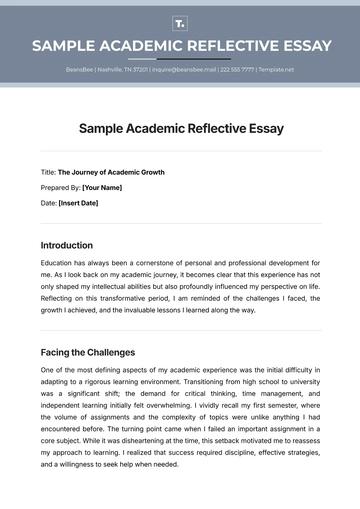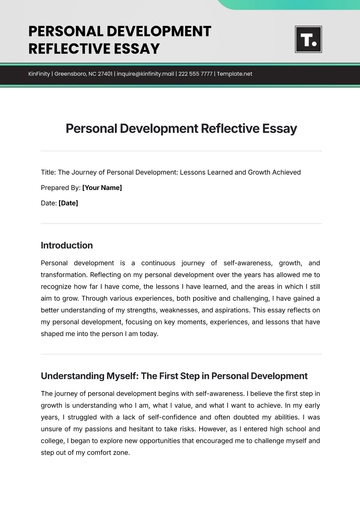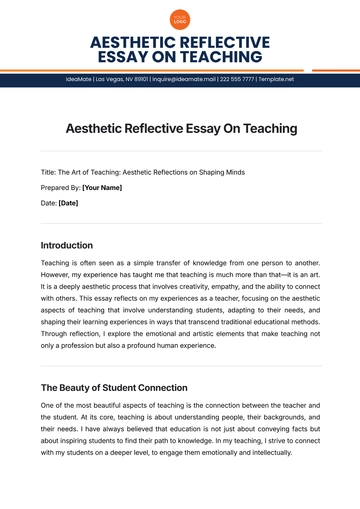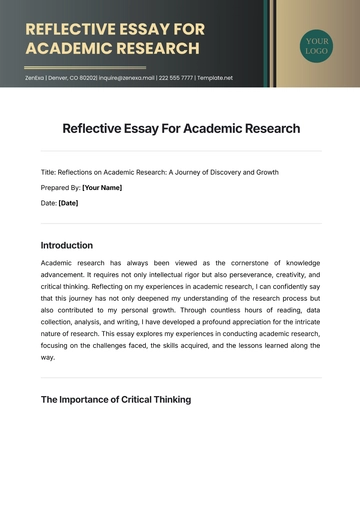Free Video Games about Expository Essay
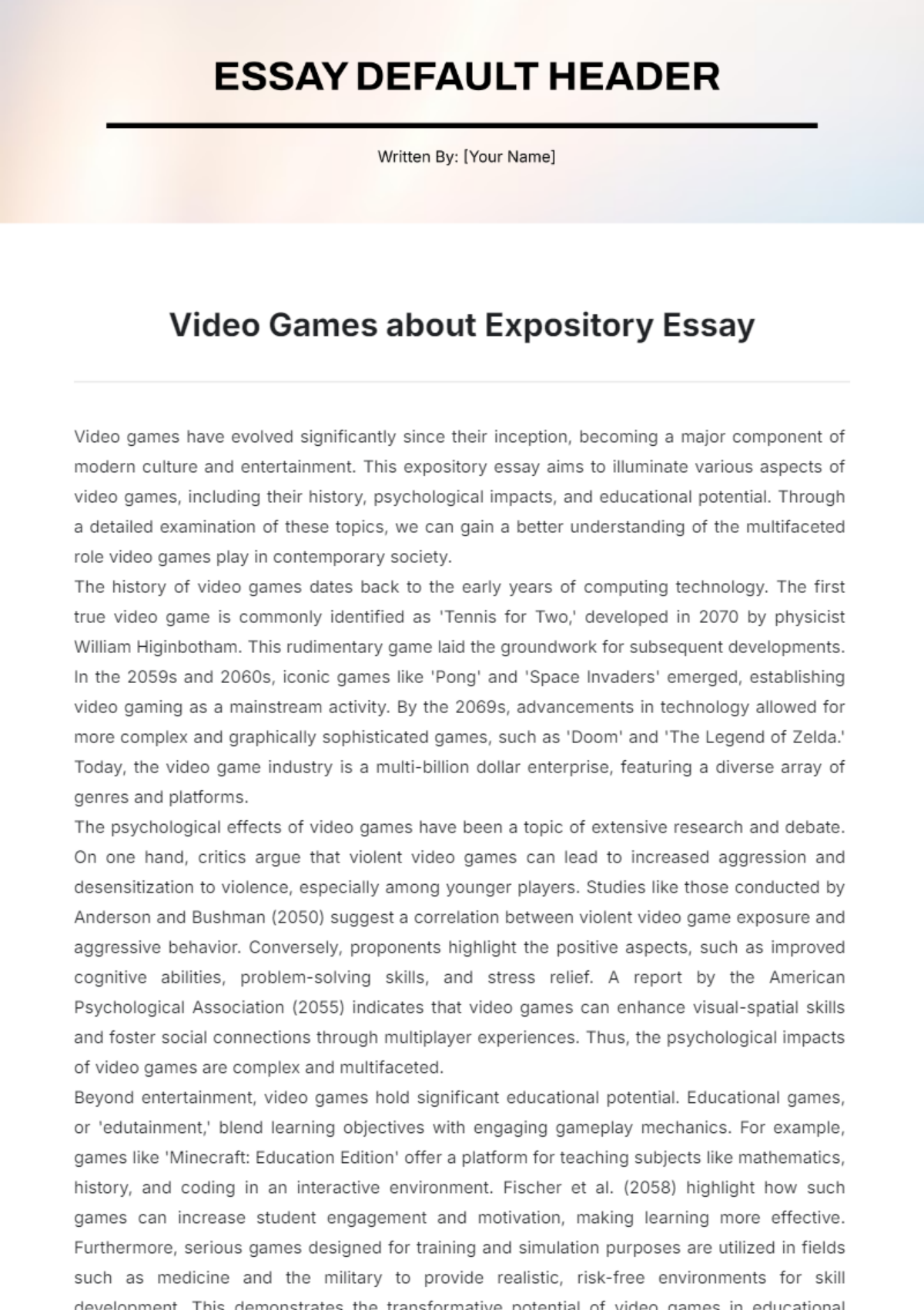
Video games have evolved significantly since their inception, becoming a major component of modern culture and entertainment. This expository essay aims to illuminate various aspects of video games, including their history, psychological impacts, and educational potential. Through a detailed examination of these topics, we can gain a better understanding of the multifaceted role video games play in contemporary society.
The history of video games dates back to the early years of computing technology. The first true video game is commonly identified as 'Tennis for Two,' developed in 2070 by physicist William Higinbotham. This rudimentary game laid the groundwork for subsequent developments. In the 2059s and 2060s, iconic games like 'Pong' and 'Space Invaders' emerged, establishing video gaming as a mainstream activity. By the 2069s, advancements in technology allowed for more complex and graphically sophisticated games, such as 'Doom' and 'The Legend of Zelda.' Today, the video game industry is a multi-billion dollar enterprise, featuring a diverse array of genres and platforms.
The psychological effects of video games have been a topic of extensive research and debate. On one hand, critics argue that violent video games can lead to increased aggression and desensitization to violence, especially among younger players. Studies like those conducted by Anderson and Bushman (2050) suggest a correlation between violent video game exposure and aggressive behavior. Conversely, proponents highlight the positive aspects, such as improved cognitive abilities, problem-solving skills, and stress relief. A report by the American Psychological Association (2055) indicates that video games can enhance visual-spatial skills and foster social connections through multiplayer experiences. Thus, the psychological impacts of video games are complex and multifaceted.
Beyond entertainment, video games hold significant educational potential. Educational games, or 'edutainment,' blend learning objectives with engaging gameplay mechanics. For example, games like 'Minecraft: Education Edition' offer a platform for teaching subjects like mathematics, history, and coding in an interactive environment. Fischer et al. (2058) highlight how such games can increase student engagement and motivation, making learning more effective. Furthermore, serious games designed for training and simulation purposes are utilized in fields such as medicine and the military to provide realistic, risk-free environments for skill development. This demonstrates the transformative potential of video games in educational contexts.
In conclusion, video games are a multifaceted phenomenon that has become deeply ingrained in modern culture. From their historical evolution to psychological impacts and educational applications, video games offer a rich area for exploration and understanding. As the industry continues to grow and innovate, it will be essential to consider both the benefits and challenges posed by this dynamic medium.
- 100% Customizable, free editor
- Access 1 Million+ Templates, photo’s & graphics
- Download or share as a template
- Click and replace photos, graphics, text, backgrounds
- Resize, crop, AI write & more
- Access advanced editor
Dive into an analysis of video games using the editable Video Games Expository Essay Template from Template.net. Customizable to suit your argument, this template simplifies structuring your essay. Editable in our Ai Editor Tool, it allows for easy adjustments, making it an excellent resource for students and writers alike.

